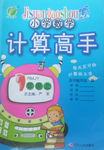题目内容
—Is that picture hanging up in your bedroom?
—________
—Is it in your bedroom?
A.I beg your pardon? B.So what? C.Take it easy. D.What if?
A
【解析】
试题分析:考查交际用语。A请你再说一遍。B那又怎样?C放松点。D要是。。该怎么办呢?从下句对上句内容的重复Is it in your bedroom?可知说话人没听清楚,由此可知A选项正确。句意:---那幅画挂在你的卧室了吗?--请再说一遍?---我是说它在你的卧室里吗?
考点:考查交际用语。

 计算高手系列答案
计算高手系列答案
Canada 4:00 a.m. to 8:00 a.m.
Canada is a big country with six time zones. In the west, it is four a.m., and everyone is asleep, but in Halifax on the east coast it is eight o'clock and people are having breakfast. It is a cold Friday morning in November, and the temperature is ten degrees below zero Centigrade.
Argentina 9:00 a.m.
In Buenos Aires, the capital of Argentina, it is nine a.m. on a warm summer morning, and people are starting work or school. November is a summer month in Argentina because it is in the southern hemisphere(南半球).
Scotland 12:00 noon
Scotland is part of the United Kingdom. The capital of Scotland is Edinburgh, and the capital of the UK is London. It is twelve noon, or midday, in Edinburgh. Children are having lessons, but they are looking forward to the weekend because there is no school on Saturday and Sunday.
Egypt 2:00 p.m.
Friday is already the weekend in Egypt. Friday is a special day for Muslims, so schools, offices and shops are closed in all Arab countries. So now, at two p.m., most people in Egypt are having lunch with their families.
Japan 9:00 p.m.
Japan is seven hours ahead of Egypt, so it is already Friday evening there. The weekend is beginning. Most people are out with friends or watching television or playing computer games.
New Zealand 12:00 midnight
It is late on Friday night, so most people are asleep. Now Saturday morning is arriving. It is morning in Canada too, but that is Friday morning!
【小题1】In eastern Canada, the time is _____ that in western Canada.
| A.four and a half hours behind | B.four hours ahead of |
| C.three hours ahead of | D.the same as |
| A.sleeping | B.going home | C.at school | D.having supper |
| A.Japan | B.Canada | C.New Zealand | D.Scotland |
| A.it’s midnight and most people are asleep |
| B.it’s noon and many people are having lunch |
| C.it’s the morning and many people are working |
| D.it’s the afternoon and most people are playing computer games |
| A.1:15 p.m. | B.2:15 p.m. | C.1:15 a.m. | D.2:15 a.m. |
James Stallman Rockefeller, the oldest-known U. S. Olympic medal winner and the former head of the bank that became Citigroup, died Tuesday. He was 102. Records of the U. S. Olympic Committee show that Rockefeller was the oldest American medal winner. He was the captain of Yale University’s eight-man rowing team with coxswain that won gold at the 1924 Paris Olympics - beating the Canadian team by less than 16 seconds. The oars from the winning race and the gold medal were prominently displayed in Rockefeller’s house. “I think he was really proud of that - probably more than the bank career,” said his grandson.
Rockefeller suffered a stroke on Thursday, said his grandson, who lived with him at his Greenwich home for two years, attributed his long life to a regimented(严密组织的) lifestyle: breakfast at eight a. m. , lunch at 1 p. m. , cocktails at 6 p. m. and dinner promptly at 7 p. m. . He liked plain food, without sauces or cheese, and plenty of fresh vegetables, including those grown in the garden of his estate. Rockefeller was in good health until shortly before he died. He drove his car up until last year and would review documents from the various charities and businesses he helped lead.
Rockefeller, born on June 8, 1902, was a grandson of William Rockefeller, who founded Standard Oil with his brother, John D. Rockefeller. He graduated from Yale in 1924 and served in the Airborne Command during World War II. He started at the bank, and then called the National City Bank, in 1930, following his uncle and grandfather, who were leaders of the bank. He became president in 1952, chairman in 1959 and retired in 1967. In 1955, under Rockefeller’s leadership, the bank merged with the First National Bank of New York to form Citigroup. Rockefeller also was a director of numerous companies, including Pan American Airways, Northern Pacific Railroad, NCR and Monsanto, and served on the boards of the Memorial Sloan-Kettering Cancer Center and the American Museum of Natural History.
Rockefeller and his wife. Nancy Carnegie Rockefeller, had four children. His wife died in 1994.
1.
Rockefeller lost his wife when he was____ ___.
|
A.at the age of 91 |
B.in his eighties |
C.in his early nineties |
D.in his 1994 |
2.
We can learn from the passage that ____ ___.
|
A.the American rowing team beat the Canadian team in less than 16 seconds in 1924. |
|
B.Rockefeller was the first American medal winner. |
|
C.James Stallman Rockefeller founded the National City Bank and was the first president. |
|
D.His grandson thought Rockefeller had long life because of a regimented lifestyle. |
3.
What we can infer from the passage is that ______.
|
A.James Stallman Rockefeller is a great Olympic medal winner. |
|
B.James Stallman Rockefeller was in good health until he died. |
|
C.James Stallman Rockefeller was very active in American society. |
|
D.James Stallman Rockefeller was the only grandson of William Rockefeller. |